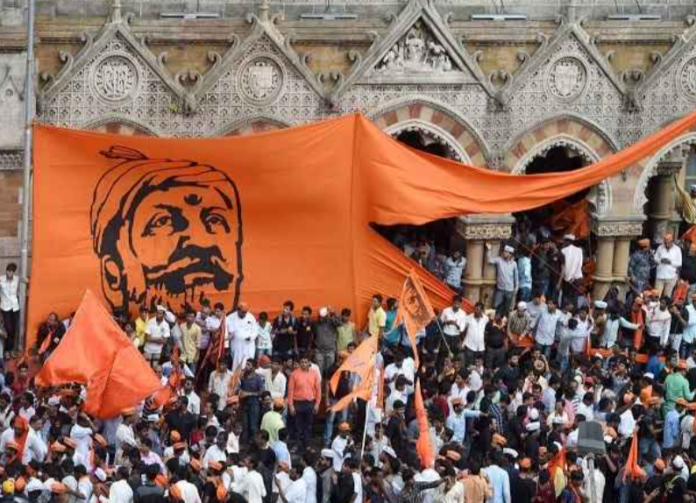Jeev Kant Jha
The Maharashtra assembly unanimously passed the Bill for 10 per cent Maratha reservation in education and government jobs. This move comes in the wake of a protest led by activist Manoj Jarange Patil who has started an indefinite hunger strike at his village in Jalna district. However, the demand for the Marathas is not new. In Maharashtra, the Maratha reservation issue has become a weapon in the hands of the political parties to score brownie points against each other. The Marathas, a politically dominant community accounting for one-third of the population, have been staging protests in different parts of the State seeking reservation in government jobs and education under the OBC category. All major parties in the State have sought to garner political mileage out of the agitation at various stages.
The previous Devendra Fadnavis-led BJP government had approved the OBC quota for Marathas after violent protests rocked the State in 2017-18. Based on the findings of the Backward Class Commission, it gave its nod for reservation to Marathas under a special provision — Socially and Educationally Backward Class Act. The reservation policy gave BJP a political edge over the then-rival Congress-NCP. Now, the issue was haunting the BJP-Shiv Sena (Shinde faction) coalition government. Fadnavis, who holds the home portfolio, was the target of the attacks by opposition parties riding the quota politics. Two MPs loyal to Shinde had resigned over the reservation issue, which was turning into a political hot potato.
While the Bombay High Court had upheld the quota move in the past, the Supreme Court, in a key judgment in May 2021, scrapped the Maratha reservation calling it unconstitutional and questioning the rationale behind it. The five-judge constitutional bench found that there were no ‘exceptional circumstances’ or ‘extraordinary situation’ in Maharashtra which required the government to break the 50% reservation ceiling limit set by the apex court. In November last year, after the SC upheld the 10% quota for the Economically Weaker Sections, the government said that until the issue of the Maratha reservation is resolved, economically weaker members of the community can benefit from the EWS quota. In the meantime, it is planning to file a curative petition before the Supreme Court over the issue. Now again, there is every possibility that matter may be engulfed in a legal battle, let us wait and watch, what the future has in store.
Now given the above-mentioned circumstances of quota politics, The Emerging World presents a timeline on the issue over the years.
1981: The state saw its first protests under the leadership of the Mathadi Labour Union leader Annasaheb Patil.
1997: The first major protest was organised by the Maratha Mahasangh and the Maratha Seva Sangh. According to protestors, the Marathas were not upper-caste people but essentially Kunbis. This name is usually used in the western part of India to identify members of agrarian communities.
2008-09: Former chief ministers Sharad Pawar and Vilasrao Deshmukh supported the cause.
2009-14: Parties and organisations came out in support of the demand.
2014: Between 2009 and 2014, various parties and organisations came out in support of the demand.
In 2014, then CM Prithviraj Chavan formed a committee headed by minister Narayan Rane. It approved a proposal to reserve 16 per cent of government jobs and seats in educational institutions for Marathas and 5 per cent for Muslims. The Bombay High Court stayed the decision of the previous Democratic Front government to provide 16 per cent reservations to Marathas. The BJP-Sena government decided to move the Supreme Court.
2015: The state government tendered additional information to the Bombay High Court for supporting reservations to Marathas.
2016: The first Maratha Kranti morcha was held in Aurangabad. The government filed an affidavit to justify the reservation for Marathas.
2017: The Maharashtra government formed the State Backward Class Commission to study the social, financial and educational status of Marathas.
2018: The Maratha reservation issue disrupts the monsoon session of the state legislature in Nagpur. The panel submitted its report to the Maharashtra government. The Maharashtra legislature passes a bill proposing 16 per cent reservation.
2019: The High Court upholds the constitutional validity of reservation but asks the government to reduce it from 16 per cent to 12 to 13 per cent. The appeals were filed before the Supreme Court against the HC verdict.
2020: The top court referred the case to a larger bench on whether the state has the power to declare a class socially and economically backward.
2021: The five-judge bench of the top court reserved its judgment. In May, the Supreme Court held the Maratha reservation unconstitutional.
2022: In November 2022, the SC upheld the 10 per cent quota for the Economically Weaker Sections. The state government said until the issue of the Maratha reservation is resolved, economically weaker members of the community can benefit from the EWS quota.
2023: Former chief minister Uddhav Thackeray demanded that the Centre resolve the issue by calling a special session of Parliament. In November 2023, Maharashtra CM Eknath Shinde said an all-party meeting had decided that reservation should be given to the Maratha community.
2024: The Supreme Court admitted the curative petition. Deputy CM Devendra Fadnavis said the CM chief minister had already set a timeline for implementing the Maratha reservation and planned to convene a special state legislative session in February.


